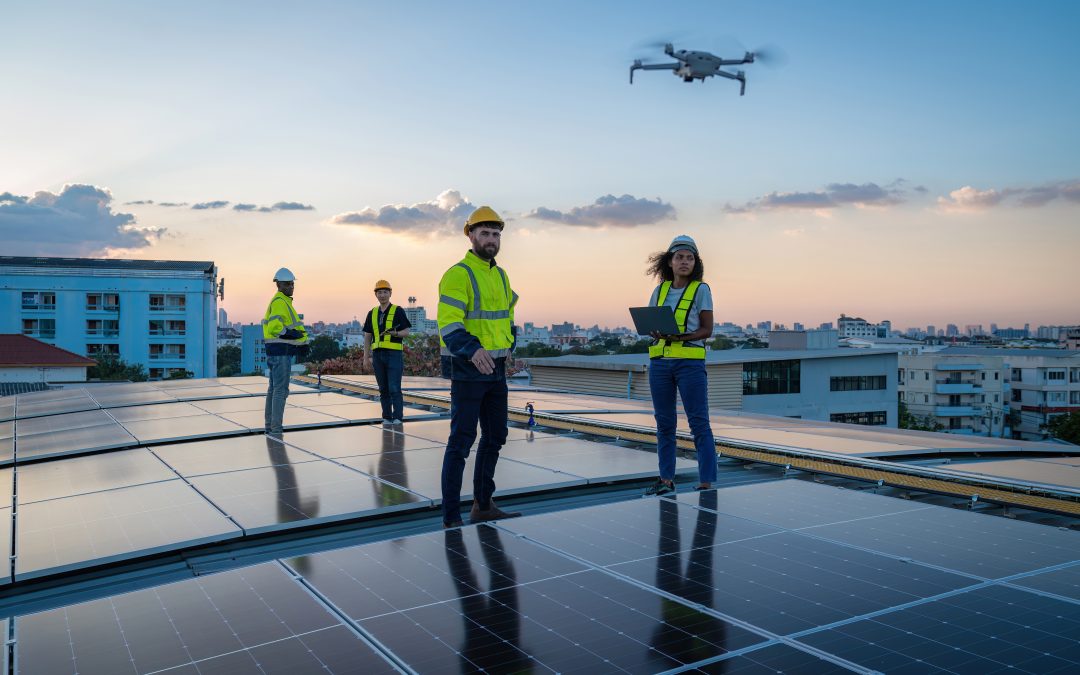As solar energy becomes an increasingly vital component of our renewable energy landscape, maintaining the efficiency and longevity of solar panels has never been more crucial. Traditionally, cleaning these panels has been a labor-intensive, risky, and sometimes inefficient process. However, the advent of drone technology is poised to revolutionize this essential maintenance task, offering a futuristic solution that is both safer and more effective.
The Growing Necessity for Clean Solar Panels
Solar panels work by converting sunlight into electricity through photovoltaic (PV) cells. When these cells are covered in dirt, dust, bird droppings, or other debris, their efficiency can be significantly reduced. This not only decreases the amount of electricity generated but can also lead to higher energy costs and reduced system longevity.
Regular cleaning is essential to ensure that solar panels continue to operate at peak efficiency. However, traditional cleaning methods pose several challenges. Manual cleaning often involves significant physical effort, the risk of accidents, and potential damage to the panels themselves.
The Limitations of Traditional Cleaning Methods
Manual cleaning techniques, though common, are fraught with difficulties:
- Safety Concerns: Climbing onto roofs and using ladders exposes cleaners to the risk of falls and other injuries.
- Panel Damage: Using improper tools or high-pressure water jets can scratch or otherwise damage the delicate surfaces of solar panels.
- Inefficiency and Water Waste: Manual cleaning can be time-consuming and often involves considerable water usage, which is not sustainable in many regions.
Drones: The Future of Solar Panel Cleaning
The introduction of drones into the solar panel cleaning industry represents a significant technological leap forward. These sophisticated machines offer a host of benefits that make them ideally suited for this task.
Unmatched Efficiency
Drones are capable of cleaning solar panels far more quickly and effectively than traditional manual methods. Equipped with precision nozzles and advanced navigation systems, they can systematically clean each panel, ensuring no spot is missed. This increased efficiency means that larger solar installations can be maintained in less time, enhancing overall energy production.
Superior Safety
By eliminating the need for human cleaners to physically access the panels, drones dramatically reduce the risk of accidents and injuries. Operators can control the drones from the safety of the ground, avoiding the dangers associated with working at heights. This makes drone cleaning a far safer alternative to traditional methods.
Accessibility and Precision
Drones can easily reach areas that are difficult or dangerous for human cleaners to access. Whether on steep rooftops or expansive solar farms, drones can navigate around obstacles and clean panels with precision. Their ability to operate in hard-to-reach locations ensures that every panel receives the maintenance it needs to function optimally.
The Sherpa Drone: Leading the Charge in Solar Panel Cleaning
One of the most advanced solutions on the market today is the Sherpa Drone. Designed specifically for solar panel cleaning, the Sherpa Drone offers a range of features that set it apart:
- Non-Contact Cleaning: By using a spray system, the Sherpa Drone cleans panels without physical contact, minimizing the risk of scratches and damage.
- Extended Battery Life: Enhanced battery performance allows the Sherpa Drone to clean for longer periods, making it ideal for large installations.
- Obstacle Avoidance: Advanced sensors enable the Sherpa Drone to navigate around obstacles, ensuring a thorough and safe cleaning process.
Embracing Drone Technology for a Sustainable Future
As the world continues to shift towards renewable energy, the importance of maintaining solar panel efficiency cannot be overstated. Drone technology offers a revolutionary approach to this challenge, providing a safer, more efficient, and more effective method of cleaning solar panels.
By adopting drones like the Sherpa, solar energy providers and homeowners alike can ensure that their systems operate at peak performance, contributing to a more sustainable and energy-efficient future. The integration of drones into solar panel maintenance is not just a technological advancement; it is a necessary step towards optimizing the benefits of solar energy in our quest for a greener planet.


Recent Comments